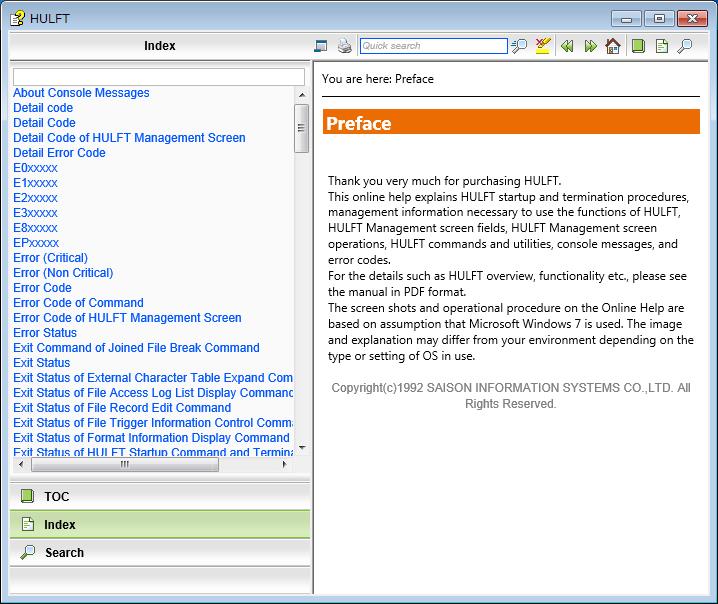| Error Message | Possible Causes | Solution |
|---|---|---|
| “Go.mod file not found in current directory or any parent directory.” |
|
|
DataSource : Golang Official Documentation
A ‘go.mod’ file is critical for managing dependencies in Go projects smoothly. Each Go module has its ‘go.mod’ file located at the root of the module’s file tree. This file defines the module’s module path, which is the import string used in Go source code to reference the package’s contents, alongside its dependency requirements.
However, when the error message: “go.mod file not found in current directory or any parent directory” shows up, it means that Go commands cannot locate a ‘go.mod’ file where they expect it to exist. In essence, you might be operating outside the Go project’s root directory, the ‘go.mod’ file may not be correctly named or positioned, or your development environment does not recognize Go modules.
Mitigating such errors involves ensuring you operate within your project’s root directory; cross-verify that the ‘go.mod’ file resides right at the project’s root directory and bears the precise name ‘go.mod’. Additionally, check whether the module declaration in the ‘go.mod’ file resembles this form:
module github.com/your_username/your_repository
. Lastly, you might need to upgrade to Go’s recent version or switch to an integrated development environment (IDE) supporting Go modules.All right. Let’s traverse into the error message: “go.mod file not found in current directory or any parent directory. See `go help modules`.” This means that the Go compiler is expecting a configuration file named “go.mod”, but it is unable to locate this file in your current project folder or even within any of its parent directories.
The `go.mod` file came to be with the introduction of Go Modules. Go Modules is a system of managing dependencies in Go projects, and it was introduced in Go version 1.11. The objective is to provide an accurate, efficient way of handling versions and named imports – replacing the older `dep` approach.
Some essential points to remembering about Go Modules are:
– Go Modules create a more reliable method of importing libraries from other developers, since they classify imports by their versions.
– The `go.mod` file holds the version information of imported packages for your project.
– When initiating a new module with `
go mod init
`, a new go.mod file is automatically generated in the package’s root directory.
To resolve the error, ensure your Go environment has modules turned on. While modules became the standard from Go 1.13 onwards, they might require activation for older versions as follows:
export GO111MODULE=on
With modules turned on, navigate to the root directory of your project and initiate modules through the command:
go mod init <module name>
This creates a fresh `go.mod` file in your project’s root directory (If it’s missing) with the module name you provided.

Here’s how a basic `go.mod` file looks like:
module my/awesome/project
go 1.16
require (
github.com/some/dependency v1.2.3
github.com/another/dependency v4.5.6
)
Each project should have one `go.mod` placed in its root directory, implying the location where you run go commands. Notably, the process of resolving this error also offers a distinct snapshot of your debugging prowess, allowing you better insights on how to manage your overall Go projects.
For more information, please refer to the official Go documentation.
Please note, if you’re using any IDE like Visual Studio Code or Goland, configuring these settings appropriately according to your workflow might result in smoother development experiences.When working with Go programming language, one common issue that developers often come across is the error message saying: “go.mod file not found in current directory or any parent directories, see go help modules”. This error typically happens when your project setup isn’t quite right or you’re attempting to use Go routines outside of a Go module.
So what exactly is a go.mod file? The go. mod file is integral in Go programming as it symbolizes the root directory of a module. This file includes information regarding the module itself, its dependencies and their specific versions [1].
To resolve this issue, follow these troubleshooting tips:
- Create a go.mod file if you don’t already have one inherent in your project:
go mod init [module_name]
- Run your Go routine again, with the presence of the go.mod file. If the error still persists, check whether you’re running your Go command from the correct directory (i.e., the same directory where the go.mod file resides):
cd /path/where/your/go.mod/file/resides go run ./... - If your module was moved or renamed after the go.mod file was created, reflect these changes by modifying the module path in the first line of the go.mod file. For example:
module your_new_path_or_module_name
- In case the module is situated inside GOPATH, move it outside of the GOPATH or disable GOPATH mode:
export GO111MODULE=on
Each of these methods addresses a different potential underlying cause for the error message. By following these directions step-by-step, you can identity and resolve your particular problem. A more thorough introduction to using Go Modules can be found on the official Go blog post “Using Go Modules“.As a Go programmer, you might occasionally encounter the error message: “go.mod file not found in current directory or any parent directory.” This can be a point of frustration, as it halts your work and puts you into debugging mode. Understanding the cause of this problem and knowing how to avoid it can help you maintain smooth coding workflows.
At its core, the error message implies that the Go system cannot find the go.mod file. This file is incredibly important in Go language programming because it defines the module’s module path, which is also the import path used for the root directory. To clarify, a module is a collection of related Go packages stored in a file tree with a go.mod file at its root1.
The go.mod file communicates which versions of dependent modules are expected, whether older or newer. Because every Go module corresponds to exactly one go.mod file, it’s essential that Go can identify this file when running operations.
To rectify the error message about the missing go.mod file, check the following:
- Current Directory – Ensure you’re operating within the correct directory. It’s an easy mistake to make. The Go module expects your working directory to be inside the module (i.e., at the root or a subdirectory).
- Create a go.mod file if it doesn’t exist – You can quickly create a new go.mod file by running
go mod init
. Provide a module path (often your repository location) as an argument, as seen below:
go mod init github.com/yourusername/reponame
- Check the file permissions – Though rare, there could be cases where the go.mod file exists, but due to user access permissions, the Go system can’t locate it.
- Consider previously cached results – Go caches results from previous builds and tests. If you’ve encountered an error before, try running
go clean -modcache
to clear the cache.
You can deal with these pitfalls preemptively to prevent that error message:
Maintaining Proper Dependency Management
Poor dependency management can be a significant source of problems when dealing with Go modules. Go leverages Semantic Versioning (SemVer) for managing version control within go.mod files2. Every time dependencies change, like adding, updating, or removing, the go.mod and go.sum files automatically update. Always commit these changes along with your affected code to ensure proper version tracking.
Structuring Your Code Correctly
If your module includes multiple related packages, it’s eligible for distribution. Ensuring a properly structured codebase aligns with Go development best practices. When starting a new project, deciding on a logical structure upfront can deter numerous frustrations later on, like the problem mentioned above. Refer to standard Go project templates or Go’s Code Review Comments wiki for guidance on structuring your projects3.

Avoiding common pitfalls associated with go.mod files in Go equips you to progress smoothly with your project. It helps you manage your dependencies better and keep your codebase solid and error-free.It is no hidden fact that debugging errors in your code, specifically ones revolving around the “Go help modules” can be a challenging task. One common issue developers often encounter is, “Go.mod file not found in the current directory or any parent directory see go help modules.” Now let’s dive into refining our understanding of this error and how we can fix it.
Essentially, when you come across this error message, it implies that Go cannot locate the go.mod file in your project. The ‘go’ command requires this file to identify the root of the module. Thereby, without the go.mod file, things will not work as expected.1
The primary reason behind this error can likely be narrowed down to these possibilities:
– The go.mod file does not exist in your project.
– You might just be in the wrong directory while executing the ‘go’ command.
– Environmental variables are improperly configured.
Let’s troubleshoot by addressing each possibility:
Scenario 1 – Absence of go.mod File:
To check if the file exists within your project, execute this command.
$ ls go.mod
If it returns ‘No such file or directory,’ this means your go.mod file doesn’t exist indeed.
In this case, create a new go.mod file using the command:
$ go mod init [module name]
Remember, replace ‘[module name]’ with your module’s name. This command will generate a new go.mod file where your dependencies will be tracked.
Scenario 2 – Incorrect Directory:
If you are working in the incorrect directory while executing ‘go’ commands, it won’t find the go.mod file even if it exists. Confirm your present directory with:

$ pwd
Make sure the directory points towards the root of the project where your go.mod file resides. If it’s the wrong directory, navigate to the correct one before running the ‘go’ command.
Scenario 3 – Misconfigured Environment Variables:
Ensure your environment variables are configured properly. Specifically, the ‘GO111MODULE’ variable should be either unset or set to ‘on’ for proper detection of go.mod. You can check what ‘GO111MODULE’ is set to by using:
$ echo $GO111MODULE
If it’s not set to ‘on’ or is unset, then do so by executing:
$ export GO111MODULE=on
Understanding modular development in Go could be tricky initially. However, breaking it down step-by-step significantly simplifies the matter. While scenarios will seldom match perfectly with theory, consider these suggestions as an excellent trouble-shooting path for the “Go.mod file not found in the current directory or any parent directory see go help modules” error.Circling back on our comprehensive walkthrough, we’ve unraveled the intricacies around the error message
go: go.mod file not found in current directory or any parent directory see go help modules
. This typically surfaces when your Go programming environment lacks a ‘go.mod’ file, a requirement for Go modules.
- I started off by explaining explicitly what Go modules are, and the critical role they play in dependency management in Go. Go modules offer a more unified, streamlined way of managing dependencies, distinguishing them from other traditional ways such as ‘GOPATH’.
- Then, we ventured into the actual causes behind this error message. We determined that the absence of a ‘go.mod’ file in your project directory or one of its parent directories leads to this technical hiccup. The ‘go.mod’ is fundamental because it defines the module’s path, which is pivotal for import statements. Without it, we’re bound to bump into this error.
- We also dived into the various fixes. Creating a new ‘go.mod’ file in your project directory was the most straight forward solution using the command
go mod init
. Alternatively, moving your project files into a directory with an existing ‘go.mod’ also circumvents the issue. Additionally, use of VS Code may often trigger this error and disabling Go language server can generally fix it.
Lastly, I leave you with a reminder – ensure the ‘go.mod’ file resides within your workspace or accessible at some parent level. Remember, Go Modules is the future of dependency handling in Go, so understanding this file along with its significance is crucial for your journey with Go programming.
For additional insights on this topic, the official Go documentation acts as an excellent resource, offering well-documented guides and tutorials. You can locate it here.
Here’s a quick code snippet illustrating how to initiate a ‘go.mod’ in your project directory.
// Open terminal // Navigate to your project directory cd /path-to-your-project-directory // Initiate Go module go mod init github.com/your-username/your-repo-name
Remember, mastering a language includes running into errors, decoding them, and learning from them in turn. Keep pushing forward!




